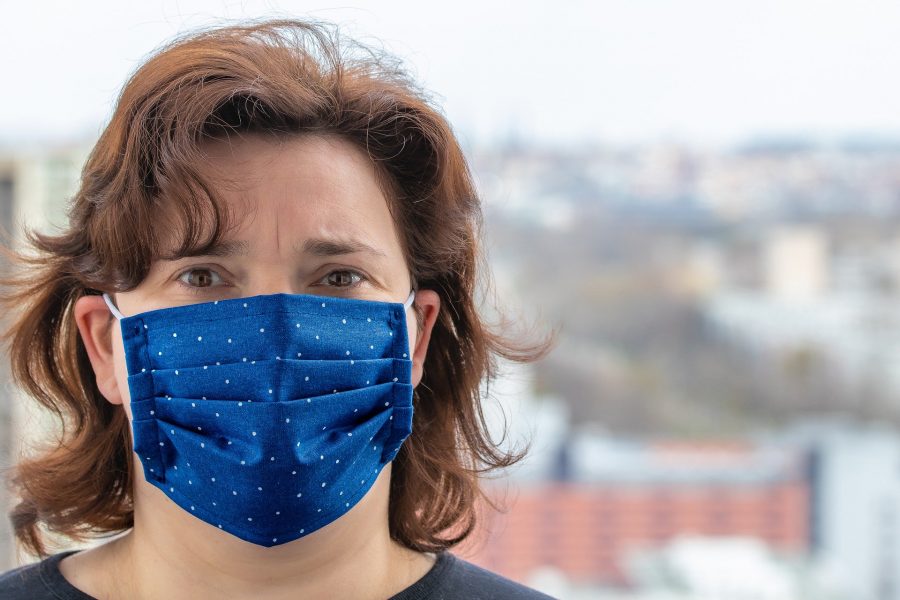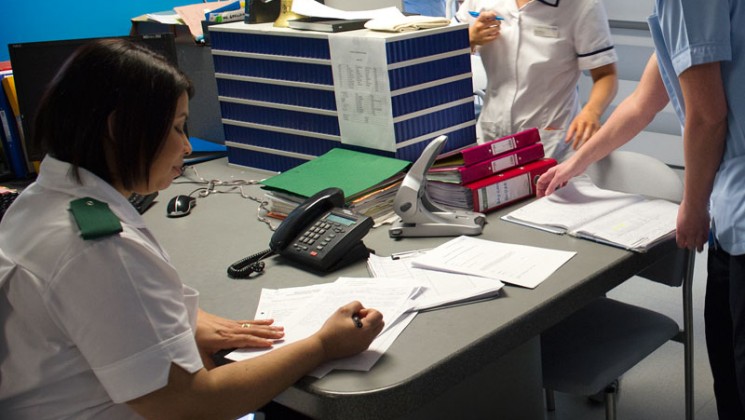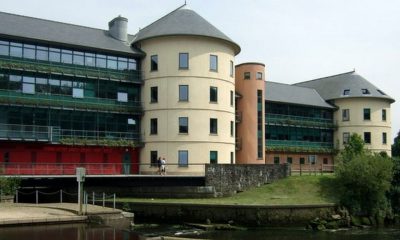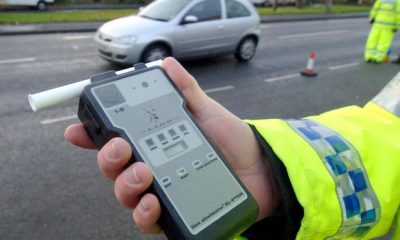Health
Covid-19 rule changes in Wales

As the Welsh Government attempts to curb the country’s high Covid rates, self-isolating laws are changing in Wales.
Welsh restrictions are being revised in the latest three-weekly review.
In light of the First Minister’s warning that if rates don’t fall in the next three weeks restrictions will be reinstated at the next review on November 19.
What is changing in Wales?
• If someone in your household tests positive or has Covid symptoms you’ll now need to isolate until you’ve had a negative test.
• You’ll need a Covid Pass in theatres and cinemas from November 15.
• Headteachers will be helped to introduce measures if case rates are high locally.
• Shops have been encouraged to get people to stick to the rules to wear masks.
• Businesses encouraged to resume working from home.
Self-isolation: what’s changing?
It is currently not necessary to self-isolate if you are double vaccinated and living with someone who tests positive, unless you have symptoms or a positive test yourself.
When someone in a household has symptoms or tests positive for Covid-19, the Welsh Government’s new guidance recommends that adults who are fully vaccinated, and children and young people aged five to 17, should isolate themselves until they have received a negative PCR test.
If you are not vaccinated, you will need to self-isolate for ten days following contact with someone who has tested positive, including close household contacts.
It is important that you self-isolate until you have taken a PCR test if someone in your household tests positive for the virus. Once the test is negative, you do not need to isolate.
If it is positive, you too will have to isolate. Also, you will have to isolate while you await the results of the test.
Besides that, what else is changing?
From November 15, you’ll need a Covid Pass to go to the cinema or theatre, meaning they are now needed in more places in Wales.
Staff and secondary school students will also be encouraged to take twice-weekly lateral flow tests to help keep coronavirus out of schools.
Retailers have been asked to ensure that people are wearing their masks indoors.
Welsh Government has also encouraged people to work from home “wherever possible”.
What are the latest figures for Wales?
The latest figures for Wales, released on Thursday, showed another 12 people in Wales have died with coronavirus.
New figures from Public Health Wales (PHW) published on Thursday, October 28, which cover the last 24-hour period, show the total number of Covid-related deaths in Wales is now 6,134.
There were also 2,664 new positive cases recorded in today’s update, bringing the total number since the pandemic began to 432,395.
The latest seven-day infection rate across Wales based on the cases for every 100,000 people (for the seven days up to October 23) now stands at 671.3 – a fall from the 699.7 reported on Wednesday and a second consecutive day where rates have fallen.
First Minister Mark Drakeford has said the rates must drop in the next three weeks, or restrictions will be considered again.
The four UK chief medical officers have asked the Joint Committee for Vaccination and Immunisation for urgent advice about reducing the interval between the second dose of the vaccine and the booster.
Welsh Government said that almost 400,000 people have had their autumn booster since the programme was launched and more than 40% of 12 to 15-year-olds have had their vaccine.
Health
Nurses warn of pay and burnout crisis as new report exposes pressures in Wales

A NEW national report has laid bare the growing pressures facing nurses and midwives in Wales, with concerns over pay, burnout and lack of professional development threatening the long-term future of the workforce.
The findings, published by the Nursing and Midwifery Council in its Spotlight on Nursing and Midwifery 2025 report, show that while many nurses remain deeply committed to their roles, large numbers feel undervalued, overstretched and reluctant to recommend the profession to others.
Responding to the report, Royal College of Nursing Wales said the data should act as a wake-up call for government and health boards.
Professor Sandy Harding, Associate Director of Nursing, Policy and Professional Development at RCN Wales, said:
“We welcome the determination and commitment shown by our existing nurses in Wales, with more than half surveyed saying they are satisfied with their day-to-day work and motivated by making a difference to people’s lives. However, the findings also present a stark reflection of the poor health of nursing in Wales.
“Too many nurses are not recommending the profession to others, are struggling and are facing abuse and discrimination in the workplace.”
Pay falling behind responsibility
One of the most pressing concerns raised in the report is pay.
Nursing leaders say salaries have failed to keep pace with the growing complexity of the job, heavier caseloads and the rising cost of living, leaving many staff feeling undervalued and financially squeezed.
For some, the pressure is forcing difficult decisions about staying in the profession or reducing hours.
RCN Wales argues that without meaningful improvements to pay, recruitment and retention will continue to suffer, placing further strain on already stretched hospital wards, community services and care settings.
Training and career progression gaps
The report also highlights inconsistent access to continuing professional development, with many nurses struggling to secure protected time or funding for further training.
According to the union, this not only limits career progression but risks undermining patient care in the long term.
Harding said: “Access to protected time and funding for continuing professional development remains inconsistent, undermining both career progression and the sustainability of the workforce.
“RCN Wales believes this is unacceptable and we will continue to support nurses and fight for fair pay, meaningful investment in professional development and better working conditions across Wales.”
Commitment remains strong
Despite the challenges, the report does note strong dedication among nursing staff.
More than half of those surveyed said they were satisfied with their day-to-day work and remained motivated by the difference they make to patients’ lives.
Health leaders say that commitment is a strength the NHS in Wales cannot afford to lose.
With around 35,000 members in Wales, the Royal College of Nursing says it will continue pressing ministers to address what it describes as a “workforce crisis” before it deepens further.
The union is calling for fairer pay settlements, safer staffing levels and guaranteed investment in training to ensure nursing remains an attractive and sustainable career.
Health
Doctor struck off after sexual misconduct findings at Withybush Hospital

Tribunal history reveals medic was removed in 2012 for dishonesty before being allowed back to practise
A DOCTOR accused of sexually harassing junior colleagues while working at Withybush Hospital had previously been struck off the medical register for lying about his qualifications, the Herald can reveal.
Dr Velmurugan Kuppuswamy is currently at the centre of fitness-to-practise proceedings after allegations he made sexually inappropriate comments and subjected two female doctors to unwanted physical contact during his time as a locum consultant in Haverfordwest.
But records show this is not the first time his conduct has come before regulators.
In 2012, an independent tribunal found he had been dishonest during an application and interview for a postgraduate cardiology training post at an NHS deanery in England.
The panel heard he falsely claimed to have submitted a Doctor of Medicine thesis, said he was a member of the Royal College of Physicians and stated he had passed a practical clinical skills assessment.
He initially admitted misleading information before later retracting parts of his account. The tribunal concluded he had “maintained his dishonest accounts” and had wrongly accused a witness of giving misleading evidence.
He was erased from the register and returned to India, where he later worked in a cardiac hospital.
In 2020, he applied to be restored to the UK medical register.
The General Medical Council investigated and opposed the application, arguing his expressions of remorse had come years late and raising concerns about a lack of independent evidence regarding his work overseas, as well as the absence of relevant ethics training.
However, an independent Medical Practitioners Tribunal at the Medical Practitioners Tribunal Service accepted his assurances that he had changed. His evidence was described as “compelling, heartfelt and genuine”, and the panel decided a well-informed member of the public would not be concerned about his return to practise.
His name was restored to the register.
Shortly afterwards, he began working shifts as a locum consultant at Withybush Hospital, which is run by Hywel Dda University Health Board.
Within months, fresh allegations emerged.
A tribunal has heard claims that between August and September 2021 he hugged junior colleagues without consent, touched their backs and waists, squeezed their wrists and arms and made sexually suggestive remarks at a staff social event.
On two occasions, he is alleged to have gripped one doctor so tightly it caused pain and ignored her requests to stop. He is also accused of staring at female colleagues, following groups of women around the venue, making comments about their bodies and placing a hand high on one doctor’s thigh.
Further allegations relate to behaviour at work, including sitting extremely close to a colleague, draping an arm behind her on a sofa and grabbing her arm while whispering comments.
According to the charges, his conduct created “an intimidating, hostile, degrading, humiliating or offensive environment” and amounted to a sexually motivated abuse of his senior position.
Dr Kuppuswamy denies wrongdoing.
Following the investigation, the case was referred to a tribunal by the General Medical Council. The decision on his fitness to practise was made independently by a Medical Practitioners Tribunal at the Medical Practitioners Tribunal Service.
The tribunal determined his behaviour amounted to serious professional misconduct and ordered that he be erased from the medical register.
Asked whether the doctor remains employed, the health board said it does not comment on individual staffing matters.
Medical director Mark Henwood said: “We have robust policies and procedures in place to ensure the safety of both staff and patients in our care and we take seriously our responsibility for their wellbeing. We are committed to providing a safe, supportive environment where patients and staff can be confident that best practice is being followed at all times.”
Health
‘Parking fine or miss my appointment’ say patients pressure mounts at hospitals

From sleeping on chairs to parking fines, patients say everyday barriers are pushing the NHS to breaking point
PATIENTS across West Wales are describing a health service under such strain that some say they now expect to be penalised simply for trying to access care.
At Glangwili Hospital, stories of patients sleeping on chairs for days due to a lack of beds have been accompanied by growing frustration over issues that begin long before anyone reaches a ward — including parking, access, and the sheer difficulty of getting through the hospital doors.
One disabled patient said they had resigned themselves to receiving a £25 parking fine in order to attend hospital appointments.
“I now accept I will be fined,” they said. “Parking is impossible, but it’s that or miss my appointment. I am too disabled to park miles away and the disabled spaces are always full.”
Others have described spending days in A&E or side rooms, unable to lie down, while waiting for a bed to become available. One patient admitted on New Year’s Day with pneumonia said they slept in a chair for four nights without a pillow or blanket before being moved, only to later discover they also had flu and should have been isolated sooner.
Across social media and in correspondence with the Herald, patients and families repeatedly stress that frontline NHS staff are not to blame — instead pointing to a system that they say is buckling under years of structural strain.
Glangwili, the largest hospital managed by Hywel Dda University Health Board, serves Carmarthenshire and is home to the county’s only accident and emergency department following the closure of A&E at Prince Philip Hospital. That closure, along with reductions in services elsewhere, is frequently cited by patients as a turning point.
Several people said the loss of local A&E and cottage hospitals has forced more patients into already stretched units, increasing ambulance reliance and long-distance travel — particularly difficult in a largely rural region.
Further west, uncertainty over services at Withybush Hospital continues to fuel anxiety, especially given the scale of reinforced autoclaved aerated concrete (RAAC) identified across the site.
Hywel Dda has acknowledged that almost 90% of Withybush is affected by RAAC, while Glangwili itself is the oldest acute hospital in Wales. The health board says more than £50 million has been spent on the two hospitals in recent years, largely to address critical safety and infrastructure risks rather than expand capacity.
Patients, however, question where that money is felt on the ground.
Some have criticised NHS procurement and management structures, while others point to social care as the missing piece. Repeated comments highlight the lack of care packages and closed care homes, which many believe are leaving medically fit patients unable to be discharged — effectively blocking beds and creating bottlenecks throughout the system.
“There’s nowhere for people to go,” one reader said. “Until social care is sorted, nothing will change.”
Concerns have also been raised about staff morale, with some alleging bullying cultures and burnout contributing to recruitment and retention problems. Again, blame is consistently directed upward rather than at nurses, doctors or porters.
Behind it all looms the long-promised new ‘super hospital’ for Carmarthenshire — first discussed in 2006 and formally launched in 2018. Eight years on, construction has yet to begin, and public confidence in the project is fading.
While Hywel Dda and the Welsh Government insist improvements are under way — including additional funding to expand capacity at Glangwili and improvements to patient experience — many patients say their reality feels far removed from official assurances.
For those attending appointments, sleeping in chairs, or weighing up a parking fine against missing care, the crisis is no longer abstract.
“It’s not politics,” one patient said. “It’s whether you get treated — and how.”
-

 Health6 days ago
Health6 days agoConsultation reveals lack of public trust in health board
-

 News1 day ago
News1 day agoPrincess of Wales visits historic Pembrokeshire woollen mill
-

 Crime5 days ago
Crime5 days agoPembroke man accused of child sex offences sent to Swansea Crown Court
-

 Community7 days ago
Community7 days agoCampaign to ‘save’ River Cleddau hits over 2,200 signatures
-

 Health3 days ago
Health3 days agoDoctor struck off after sexual misconduct findings at Withybush Hospital
-

 News7 days ago
News7 days agoWelsh Conservatives push for reversal of 20mph limit and major road spending
-

 Health7 days ago
Health7 days agoAmbulance called after ‘drop of mouthwash’ swallowed as 999 abuse highlighted
-

 Crime5 days ago
Crime5 days agoManhunt intensifies after woman seriously injured in Carmarthen park stabbing








































